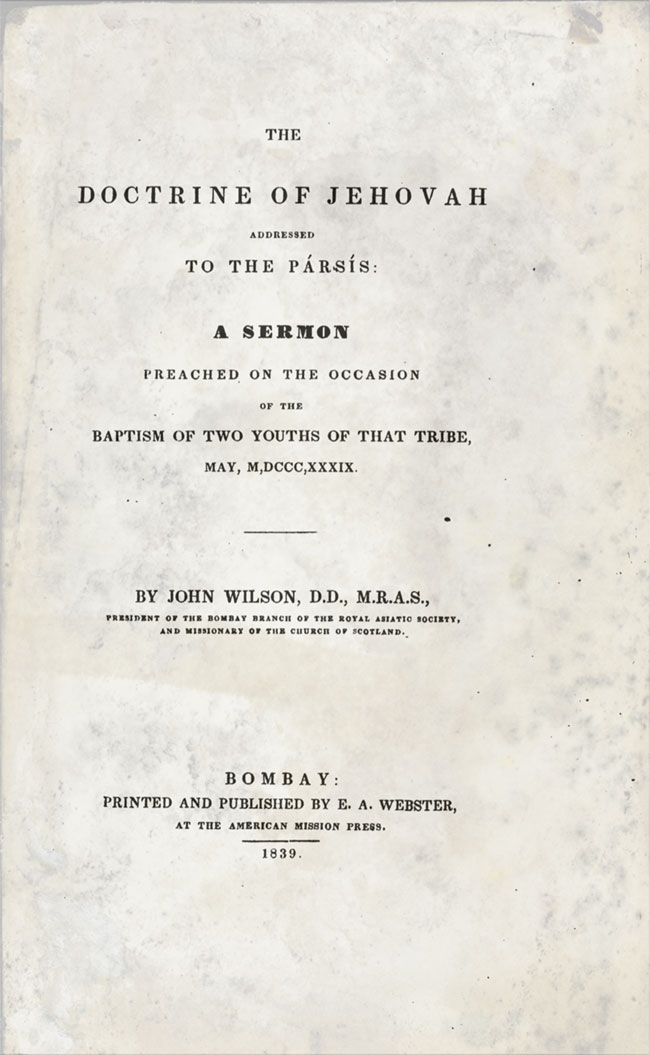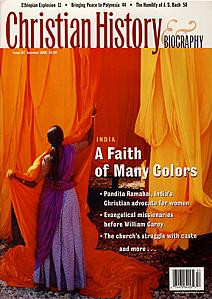PARSIS RAGED AT NAOROJI WHEN HE FOLLOWED CHRIST IN BAPTISM

[Above: John Wilson's "The Doctrine of Jehovah" title page—composite of the page and TexturesCom_PhotoMoldy0059_M from Textures.com]
IN 1835, Dr. John Wilson, a missionary of the Church of Scotland, opened a school in Bombay, India. Two days later, Dhanjibhai Naoroji, a Parsi lad about thirteen years old, applied for admission and was accepted. Four years later, he would brave threats of death as a consequence of what he had learned.
Among his readings was the Bible. At first it made little impression on him. Gradually, as he became familiar with its content, its spiritual message impressed him. According to a court deposition he made after his controversial conversion, Naoroji [also transliterated as Nowroji] said little or nothing to others about his dawning desire to follow Christ. He feared the reactions of his relatives.
At last, toward the end of 1838, he worked up enough courage to ask for baptism, “ready to suffer for my Lord and Saviour Jesus Christ, with a full assurance of the fulfilment of his promise.” Wilson observed the boy closely for several months and became convinced that Naoroji really had converted and intended to follow Christ. On the evening of this day, 1 May 1839, Wilson baptized Naoroji and another Parsi boy in the presence of many Parsis and Hindus. Outrage over Naoroji’s conversion was so great that police had to provide an escort to keep him from being torn to pieces.
During the baptismal service, Wilson addressed a lengthy sermon to the Parsis in attendance. Titled “The Doctrine of Jehovah,” it was later printed along with parts of a deposition he made to authorities—because the Parsis took the matter to court, claiming Naoroji was under age. However, as the boy was a few months over sixteen (the age of religious consent) the judge ruled he had the right to follow his conscience.
For four years, Naoroji assisted Wilson in India. He then trained for three years in a Scottish seminary, returning to India as an ordained minister in 1847. He worked courageously into old age, first as an evangelist in the Surat region, and then as a Christian leader in Bombay (where the city authorized him to solemnize marriages) and also in Poona. Among his activities was the revision of parts of the Gujarati Bible. He also wrote a book on the practice of polytheism among the Parsis and an autobiography, From Zoroaster to Christ.
On the jubilee of his ministry, fellow Christians honored him with an appreciation. He died in 1918. Indian churches commemorate him on the day of his baptism—1 May.
—Dan Graves
----- ----- -----
For more on Christianity in India, read Christian History #87, India: A Faith of Many Colors






